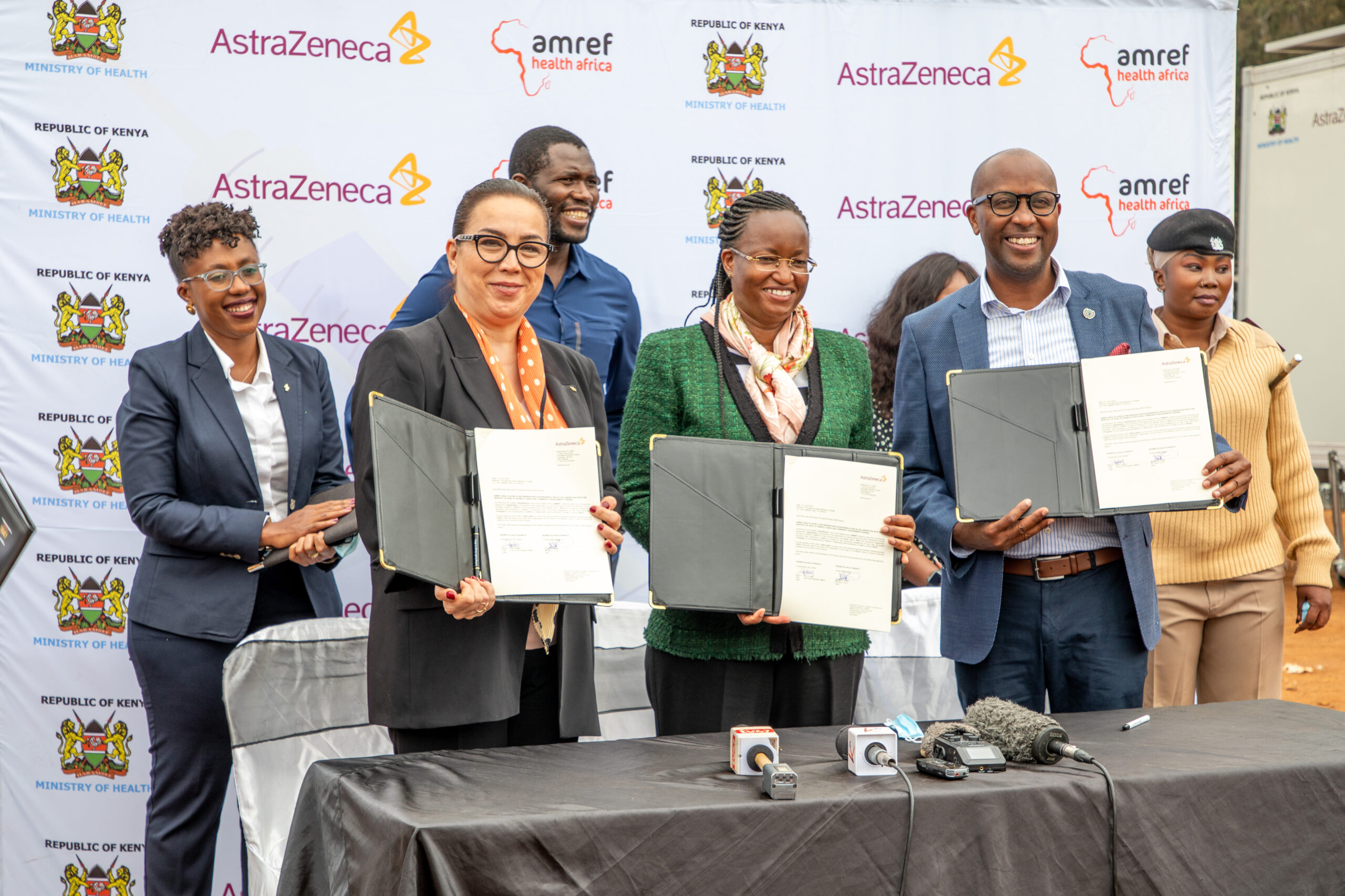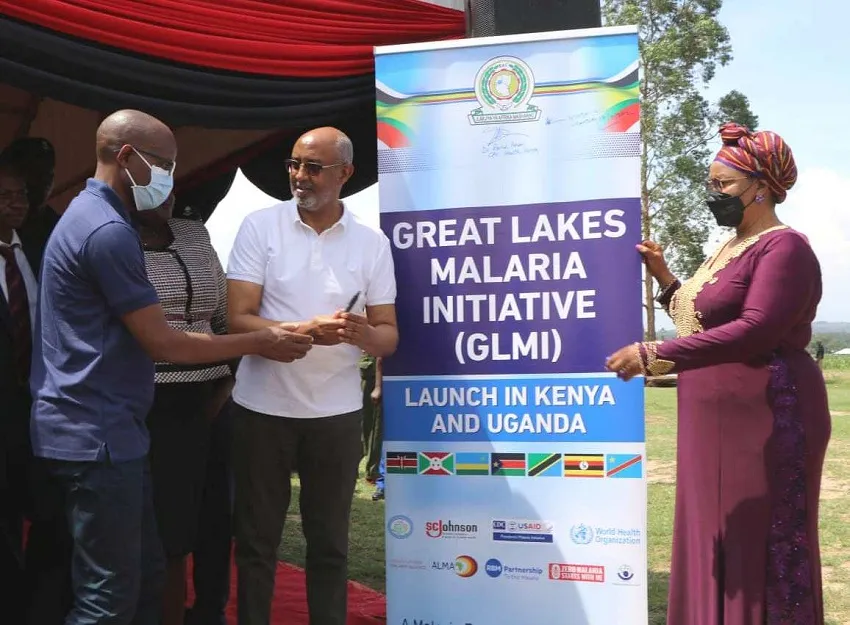STATEMENT ON THE STATUS OF FEMALE GENITAL MUTILATION (FGM) IN KENYA ON THE COMMEMORATION OF THE ZERO TOLERANCE DAY TO FGM ON 6TH FEBRUARY 2023
Monday, 6 February, 2023

As the world commemorates the zero-tolerance day of female genital mutilation (FGM) on 6th February 2023, this practice persists affecting women and girls’ health, rights and potential for self-actualization. The practice of FGM comprises all procedures that involve altering or injuring the female genitalia for non-medical reasons. It is recognized internationally as a violation of human rights, the health and the integrity of girls and women. It impedes the enjoyment of rights of women and girls including sexual and reproductive health rights and exposes women to serious health, psychological, physical, and social consequences. Efforts to have no FGM cases should be sustained and scaled up for the protection of girls and women to facilitate sustainable development.
Kenya has implemented sustained efforts for addressing FGM including creating an enabling legal-policy environment resulting in the ratification and domestication of international instruments for the protection of girls and women. In addition, the enactment of the prohibition of the FGM act has given impetus to interventions against FGM. Other enabling interventions have been vibrant end FGM movements and programs, funding from donor partners, multi-stakeholder collaboration and coordination including the involvement of communities at the centre of addressing negative social norms sustaining the practice. The collective efforts in Kenya have continued to yield results evidenced by the steady decline in the prevalence of FGM from 38% in 2003 to 15% as of 2022 among women of reproductive age. While this is an indicator of good achievement, the awaited nuanced analyses will provide critical areas that need attention to be paid.
The Academic Network for Sexual and Reproductive Health and Research (ANSER) Kenya chapter with the mandate of fostering interaction, research and knowledge sharing between academics and policymakers have aligned with the theme “Partnership with Men and Boys to Transform Social and Gender Norms to End FGM” that has potential to accelerate good outcome in addressing FGM in Kenya. The ANSER Kenya chapter is set to contribute to the agenda of child protection and human rights for women and girls through its research and evidence generation to inform policy and practice to end FGM, Child Marriage and Teenage Pregnancies in Kenya. In 2023 the ANSER Kenya institutions have developed a work plan to this effect prioritizing evidence generation, community and policymakers engagement. As part of stakeholder engagement, the ANSER Kenya chapter shares a statement on the status of FGM in Kenya consistent with the KDHS 2022.
This statement is in contribution to the marking of the International Day for Zero Tolerance to FGM on February 6th and has additionally been motivated by the recently published preliminary results of key indicators of the Kenya Demographic Health Statistics 2022 that has provided an up-to-date FGM picture for the country. The KDHS 2022, reveals that 34% of women have experienced Gender Based Violence. Additionally, the report indicates a drop in FGM prevalence from 21% to 15% nationally among women 15-49 years old although we still record disparaging regional variations among practising ethnic groups. This is a good marker of progress towards achieving zero FGM by 2030 through the acceleration of efforts by the government and partners for the abandonment of FGM. Interestingly, the increase in knowledge about FGM by both men and women in all counties regardless of education, wealth quintile or of rural or urban residence has increased with reporting of over 90% knowledge could also have contributed to the reduced prevalence reported.
To note is that the data of children of ages 0 to 14 years have not been shared yet as a key indicator in these preliminary results, it will be interesting to see what this data will look like in the comprehensive report. Also to note is that the data that focuses on the women cohort of the reproductive age group of women ages 40 to 49, is reported as 23% prevalence. A micro-analysis should focus on ethnic and geographical variations to provide insights into new and emerging practices related to FGM that may be associated with the increase of high FGM in this cohort. This indicates a potential increase when compared to that of the last KDHS 2014 which indicated a 27% prevalence for women cut 15 years and more.
In light of the above, ANSER Kenya is committed to contributing to accelerating the abandonment of FGM in Kenya through its efforts in generating the evidence required and the translation of evidence into policy and practice for the protection of children, women and girls from the harmful practice of FGM. ANSER Kenya engages the community, policymakers, county and national governments, and other stakeholders to formulate community-driven initiatives that advise policy development. The efforts towards engagement of men and boys as important stakeholders are also crucial, as policymakers, gatekeepers, fathers, uncles and brothers support the protection of girls from this harmful practice. Evidence on what works as a best practice to engage men and boys without further disenfranchising women and girls is needed, an area of work that will be explored by ANSER Kenya [1] and its members [2].
[1] ANSER Kenya is composed at the moment of three institutions; Aga Khan University, Amref International University, the University of Nairobi, Technical University of Kenya and the International Centre for Reproductive Health Kenya.
[2] Prof Marleen Temmerman, Prof Tammary Esho, Dr. Joyce Omwoha, Dr. Samuel Kimani, Dr. James Munyao, Dr. Ferdinand Okwaro, Dr. Faith Muhonja and Patrick Okwarah.







